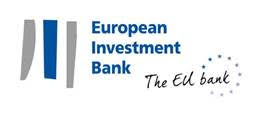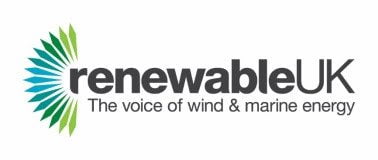

Economy
How the SSE Is Bringing Sustainability to Stock Exchanges Globally
Sustainability is the ability to endure in a way that enables the population of our planet to afford, at least, the basic quality of life. However, given that we are consuming more than is being produced, it is clear that we are living beyond the planet’s ability to support us in the future. Although sustainability deals more with protecting our future, it starts by making changes in the present. One such initiative that hopes to make a difference is the Sustainable Stock Exchange (SSE) initiative.
What Is the Sustainable Stock Exchange Initiative?
Launched in 2009, the SSE is a UN initiative. It is essentially a peer-to-peer learning platform, which explores how the stock exchange can promote global investment in sustainability. It was launched by the UN Secretary-General Ban Ki-moon and is co-organized by UNCTAD (Investment and Enterprise division) along with the UN Global Compact, the UN Environment Programs Finance Initiative and the Principles for Responsible Investment.
The SSE initiative invites exchanges from around the world to become a partner Stock Exchange by pledging to promote sustainability through a mix of environmental, social and governance (ESG) disclosure among the listed companies.
Since its launch in 2009, the Sustainable Stock Exchange (SSE) initiative today includes over 60 Stock Exchanges, which represent over 70% of listed equity markets with over 30,000 companies that have a market capitalization of $55 trillion.
Why Do Stock Exchanges Join the SSE?
When it comes to sustainability, the SSE offers a global platform upon which exchanges can learn from one another and discover the challenges they face. This platform encourages all companies listed on these exchanges to invest responsibly and explore the best practices, while learning from their peers.
By joining the SSE, exchanges can benefit from a range of supporting resources for implementing sustainability, for example webinars, workshops, and publications, among others.
Stock Exchanges have the power to impact the market in a unique way. Not only can they influence investor behavior, they can also support regulators in their efforts to promote the adoption of market standards.
According to Anthony Miller, UNCTAD’s Sustainable Stock Exchange Initiative Coordinator, “Market expectations are shifting quickly, and we see more and more Stock Exchanges viewing sustainability reporting as necessary and inevitable. Those expectations create their own momentum.”
Growing Numbers
Before the end of 2016, almost 21 Stock Exchanges plan on introducing reporting of environmental, social and governance issues. Further, 17 Stock Exchanges aim to introduce the new standards of sustainability reporting before the end of the year.
According to a UNCAT official, the total number of Stock Exchanges that will introduce sustainability reporting standards could rise to 38 by the end of 2016.
According to James Zhan, the Director of the Division on Investment and Enterprise at UNCTAD, which is co-organizing the Sustainable Stock Exchanges initiative, “21 Stock Exchanges have confirmed to us they will introduce new guidelines either this year or within the first quarter of next year, and we know that many of them are close because they have posted draft guidelines on their websites for comment and discussion.”
Mr. Zhan also stated that in addition to the UN and several NGOs advocating for sustainable reporting, markets themselves are demanding it, making this an important topic that companies cannot ignore. He made a valid point that when companies report on sustainability issues, they tend to act more sustainably too. According to analysts there is a strong positive correlation between sustainable performance and strong financial performance.
Challenges Ahead
The UN sees the private sector as a critical factor when it comes to achieving global sustainable development goals, and the SSE is a key channel for bringing the issue of sustainability to the private sector.
While the overall number of companies that report their environmental performance is increasing, much remains to be accomplished as many corporations simply comply with CSR programs without doing much to incorporate sustainable business practices.
The sustainable development goals provide a framework for exchanges to address specific factors such as gender, economic growth, responsible production and climate change. All these goals require financial aid and the private sector can help immensely. On average, achieving sustainable development goals will require financing, which is estimated to be between 5 to 7 trillion USD annually. Along with public funding and development assistance, new flows of private capital are imperative.
Final Thoughts
In order to create a truly sustainable financial system, market incentives need to be aligned with longer-term environmental, social and governance issues. All of this must eventually be integrated into standard practices to have a lasting effect on sustainability. The Sustainable Stock Exchange (SSE) initiative looks ready to make a big difference to our future by tapping into the power of our financial markets. With more exchanges joining the SSE initiative, the future is looking a little bit brighter.
Author Bio
I’m Rachel Oliver, I have been working for the past couple of years as a freelance writer. While I like to write about all things under the sun, including energy, business, sports, home improvement and fashion, I am especially passionate about technology and electronics. Currently, I am pursuing this passion by working with Digsemi – trusted partner in electronic components. You can get in touch with me on Google+, Facebook, and Twitter.


 Environment12 months ago
Environment12 months agoAre Polymer Banknotes: an Eco-Friendly Trend or a Groundswell?

 Features11 months ago
Features11 months agoEco-Friendly Cryptocurrencies: Sustainable Investment Choices

 Features12 months ago
Features12 months agoEco-Friendly Crypto Traders Must Find the Right Exchange

 Energy11 months ago
Energy11 months agoThe Growing Role of Solar Panels in Ireland’s Energy Future





























